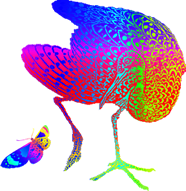
It was six years ago when the Literary Arts course of the School of Arts and Letters was restarted as the Literary Arts and Media course. Since then, the course has attracted the interest of today’s youth and developed while being blessed with a great number of applicants. And now, the Graduate School of Arts and Letters newly starts the Literary Arts and Media course, aiming at fostering specialized cultured persons who, based on this rich undergraduate education, can view the interrelation between text and the media environment where text is placed. Please keep an eye on the trial of the Literary Arts and Media course of Graduate School of Arts to “make use of traditions today.”
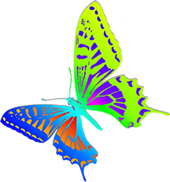 |
The course not only works on traditional literary research but also aims at pioneering a new horizon of literary-art study dealing with today’s media and media-culture environment and establishing unexploited study areas. Also as for professors, in addition to using (classical/modern) Japanese-literary-art researchers who have inherited the traditions of the School of Arts and Letters’ Literary Arts course, we also achieve mutual coordination with researchers of media culture, researchers of publications, literary reviewers, and professionals of foreign literature and translation studies, aiming at developing a new academic environment upon the base of comprehensive literary studies, which the Literary Arts course originally possessed. We expect such career options for those who have completed this new course as literary-art researchers who study within a new intellectual framework based on culture and media theories; writers of various expressive fields, including journalists, editors, copy writers, and non-fiction writers who understand the true nature of media; and Japanese-language teachers who have gained an education in media and culture situations. |
The Literary Arts and Media course, while aiming at a paradigm change in literary-art studies, tries to intercross and even go beyond existing study fields in a cross-sectional manner. To do this, we are required to have wider viewpoints of cultural history and culture theories. Therefore, based on the standpoint of a “medium called literary art” and “literary art as a medium," we developed the curriculum that would realize the course philosophy of fostering educated persons who share information involved with literary arts.
Course Subjects
| Type | Subject Name | # of credits |
|---|---|---|
| Main Subjects | Literary Arts and Media I (A, B, C, D) | 2 each |
| Literary Arts and Media II (A, B, C, D) | 2 each | |
| Literary Arts and Media III (A, B, C, D) | 2 each | |
| Literary Arts and Media IV (A, B, C, D) | 2 each | |
| Literary Arts and Media V (A, B, C, D) | 2 each | |
| Literary Arts and Media VI (A, B, C, D) | 2 each | |
| Special Subjects | Literary Arts and Media Special Lecture I (A, B) | 2 each |
| Literary Arts and Media Special Lecture II (A, B) | 2 each | |
| Literary Arts and Media Special Lecture III (A, B) | 2 each | |
| Literary Arts and Media Special Lecture VI (A, B) | 2 each | |
| Literary Arts and Media Special Lecture V (A, B) | 2 each | |
| History of Japanese Literary Arts Special Lecture (A, B) | 2 each | |
| Creative Writing Special Lecture (A, B) | 2 each | |
| Culture and Representation Special Lecture (A, B) |
2 each |
Professors
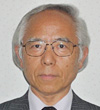 |
ICHIKAWA Koichi (Professor)[ Research Themes ] [ Teaching Subjects ] |
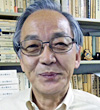 |
SATO Yoshio (Professor)[ Research Themes ] [ Teaching Subjects ] |
 |
YANAGIMACHI Tokisato (Professor)[ Research Themes ] [ Teaching Subjects ] |
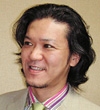 |
UCHIMURA Katsushi (Professor)[ Research Themes ] [ Teaching Subjects ] |
 |
SAGARA Go (Assistant Professor)[ Research Themes ] [ Teaching Subjects ] |
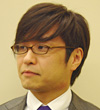 |
ITO Ujitaka (Assistant Professor)[ Research Themes ] [ Teaching Subjects ] |
 |
IIDA Toshiho (Professor)[ Research Themes ] [ Teaching Subjects ] |